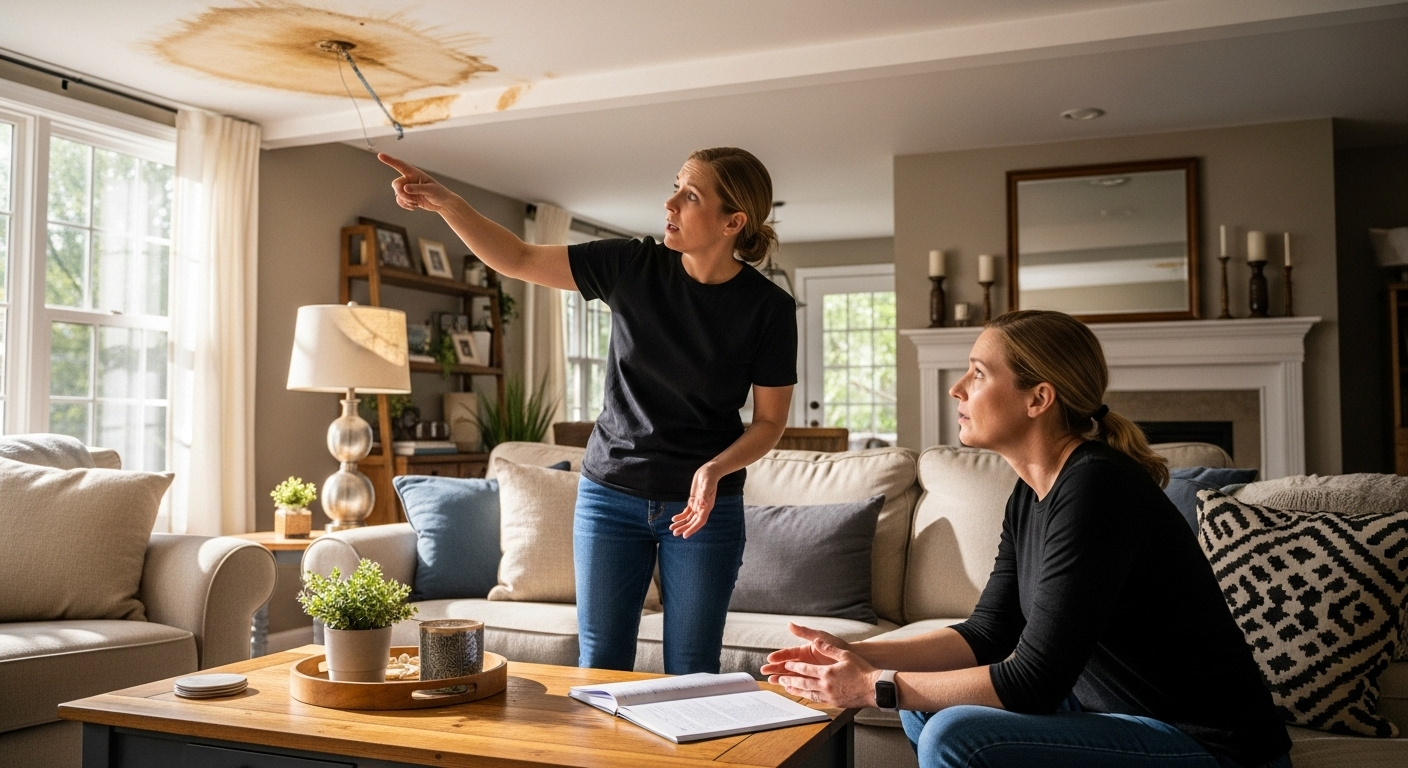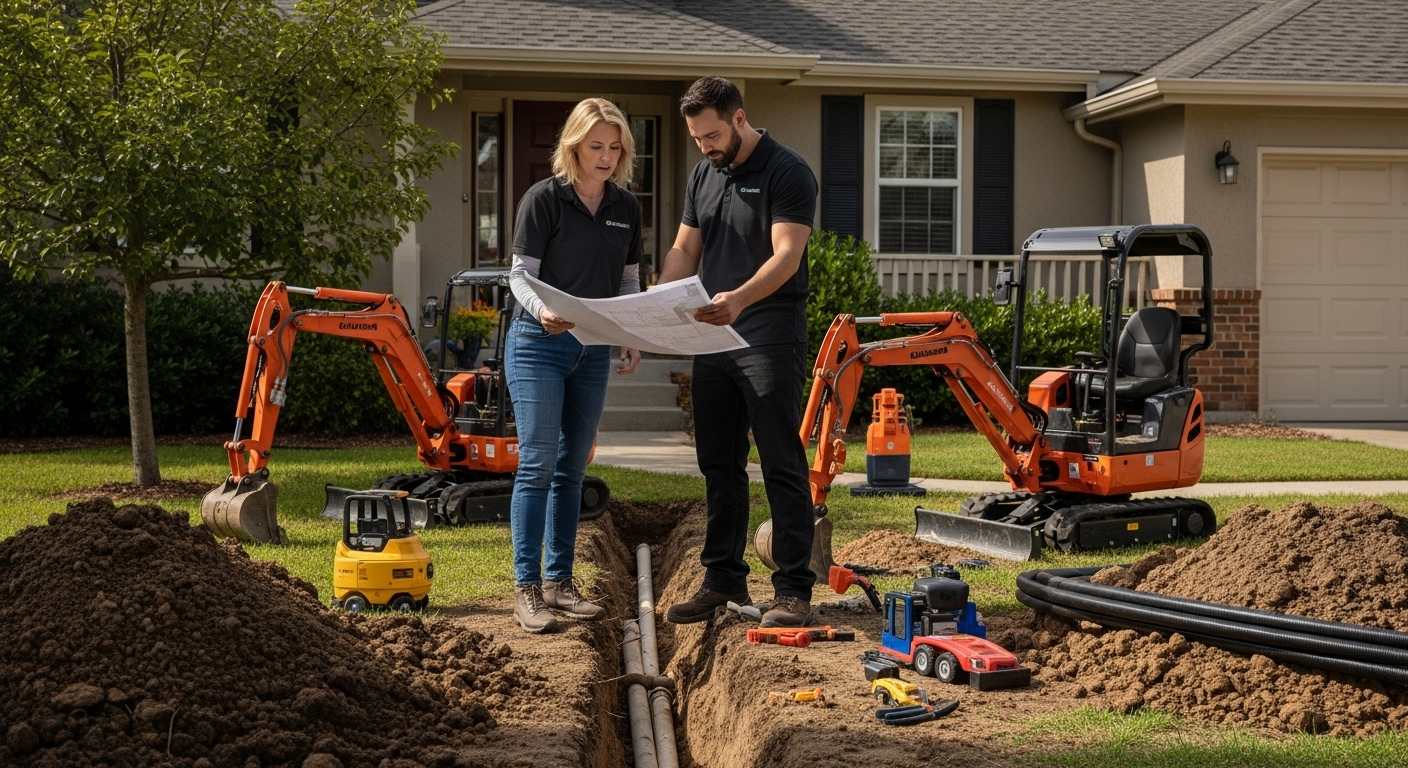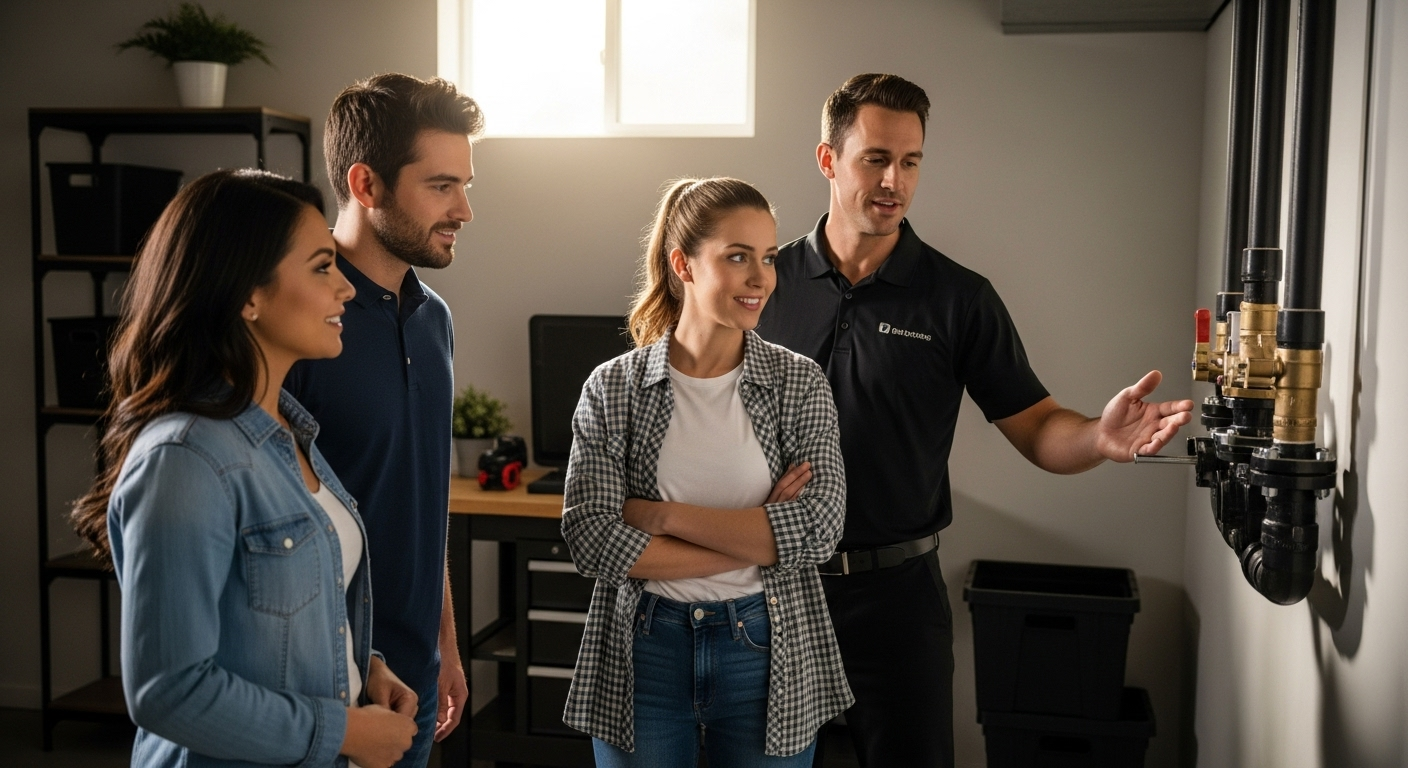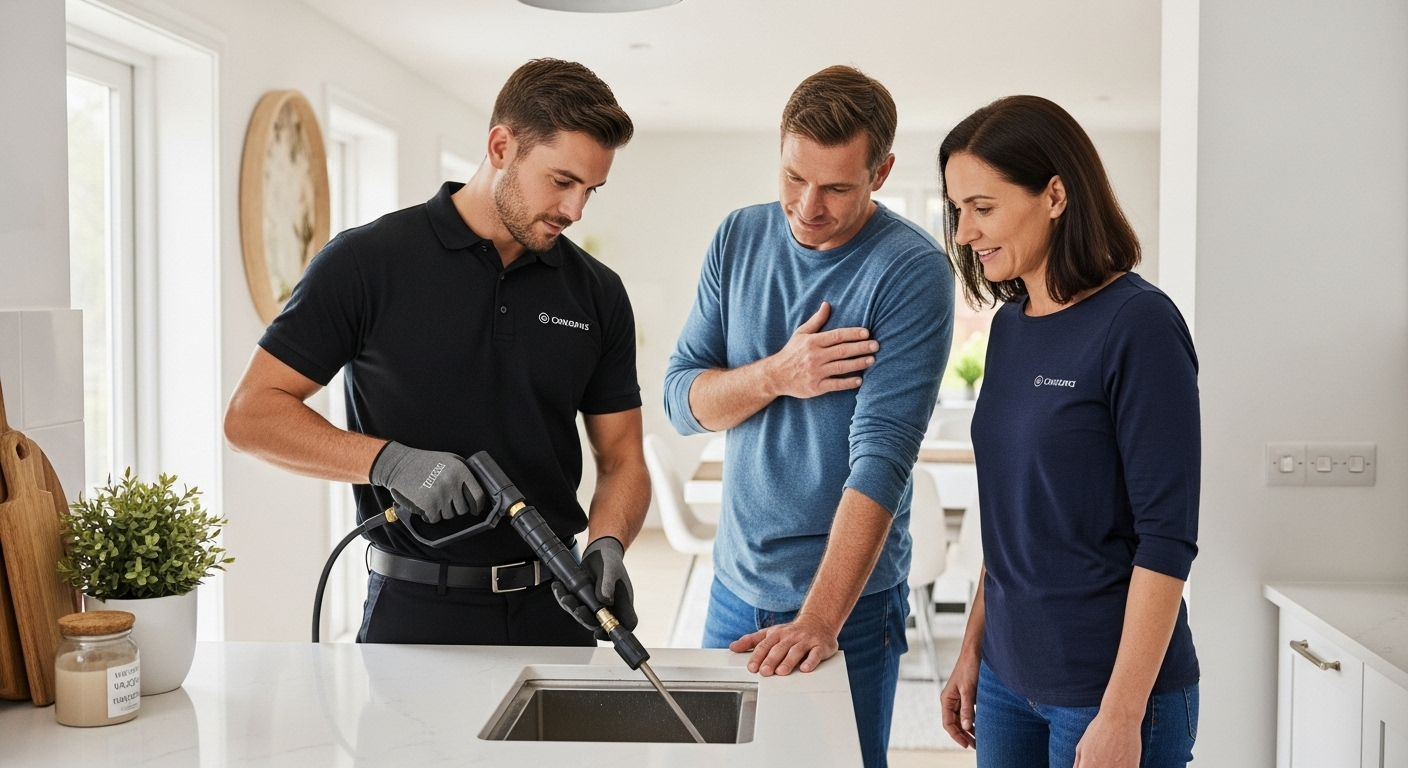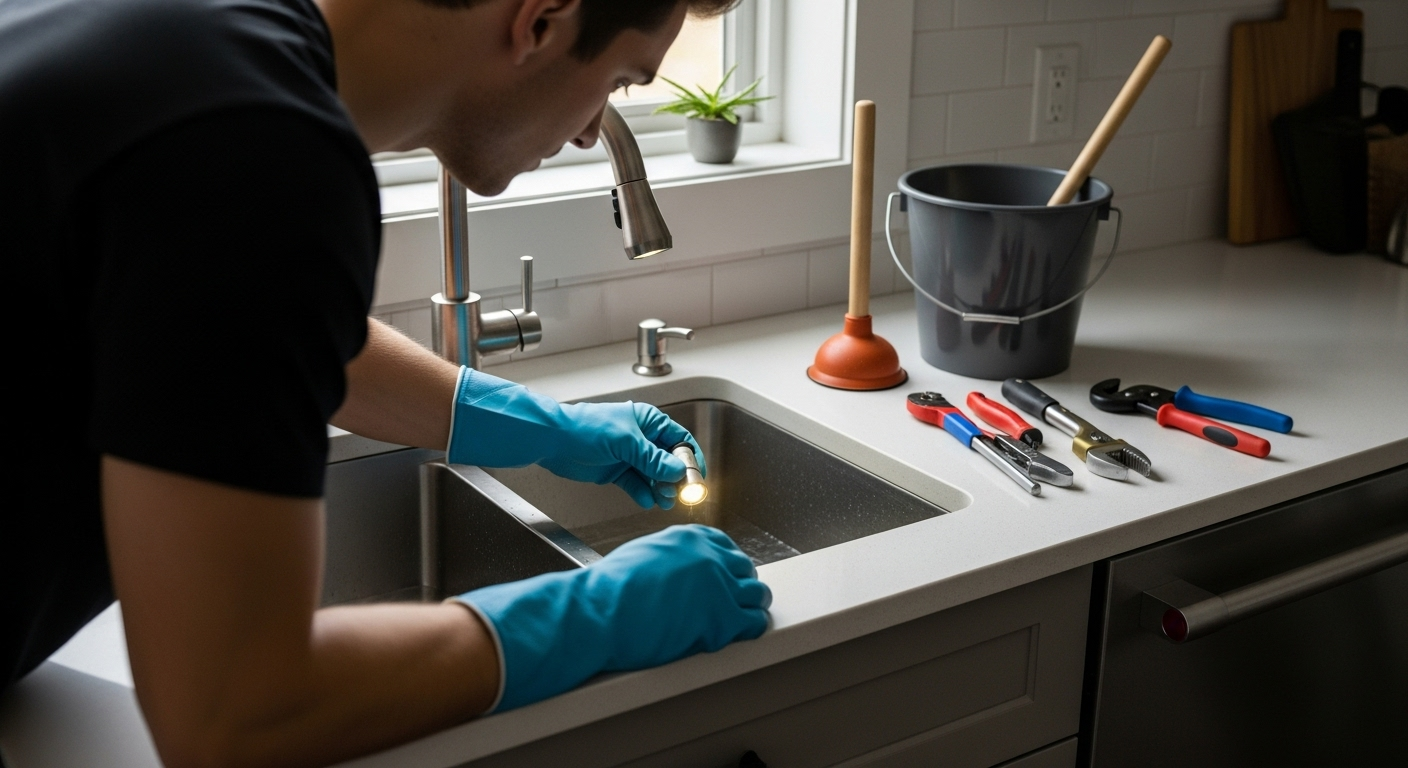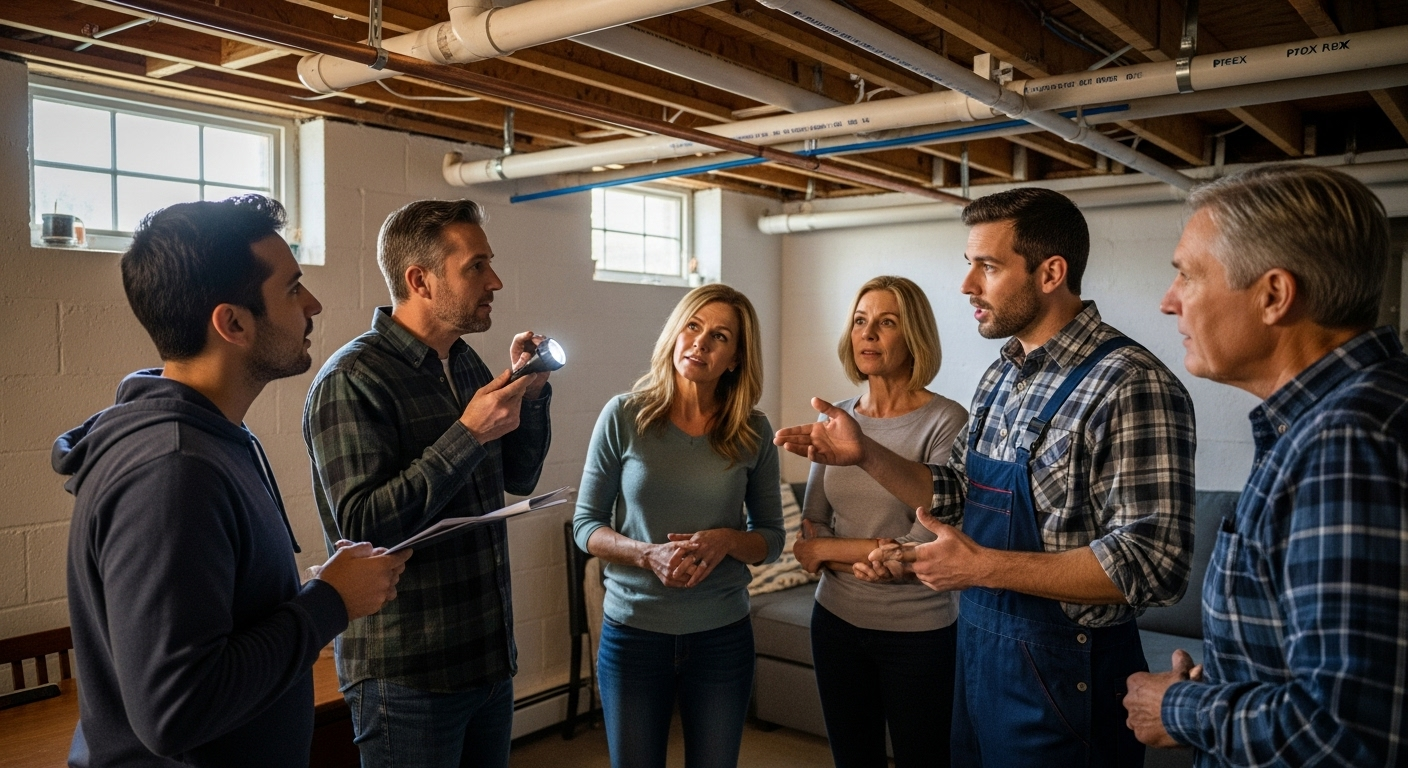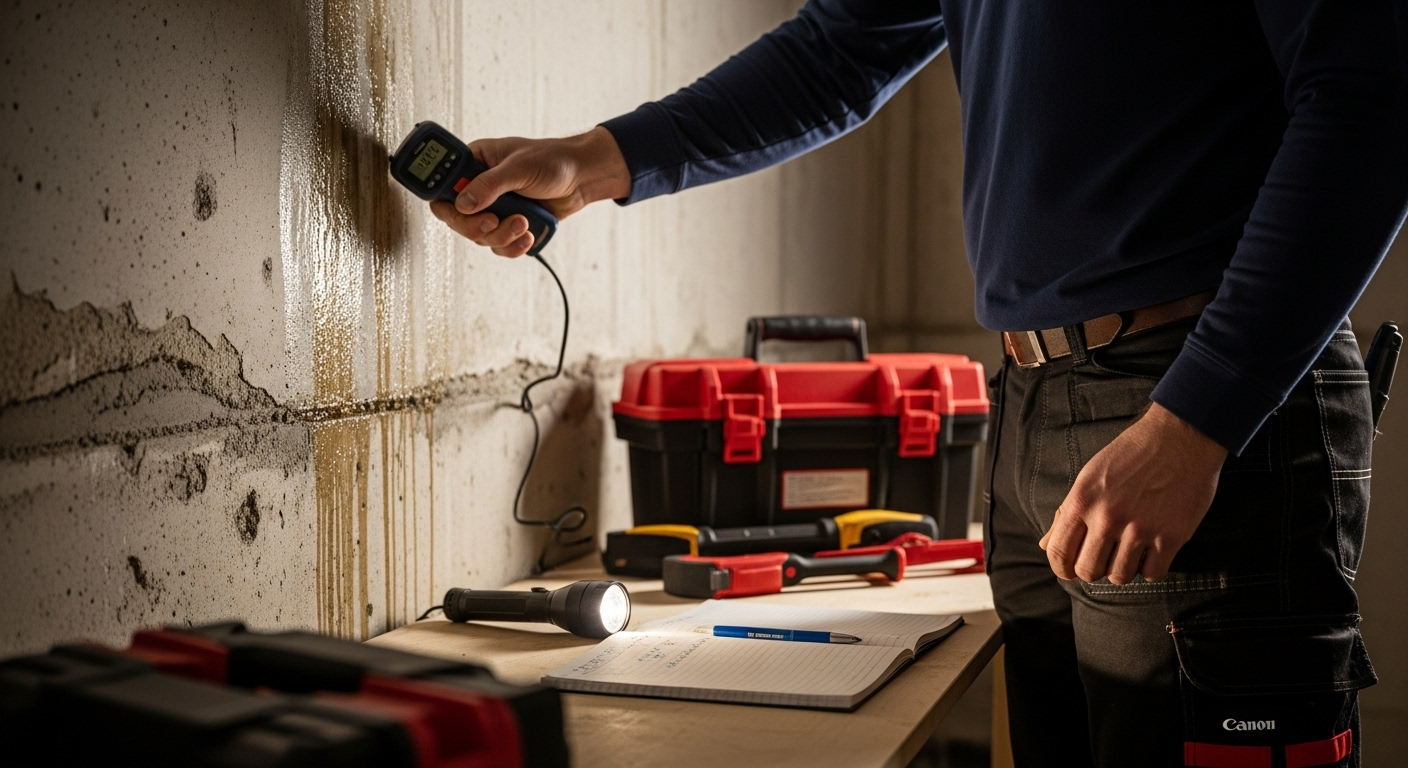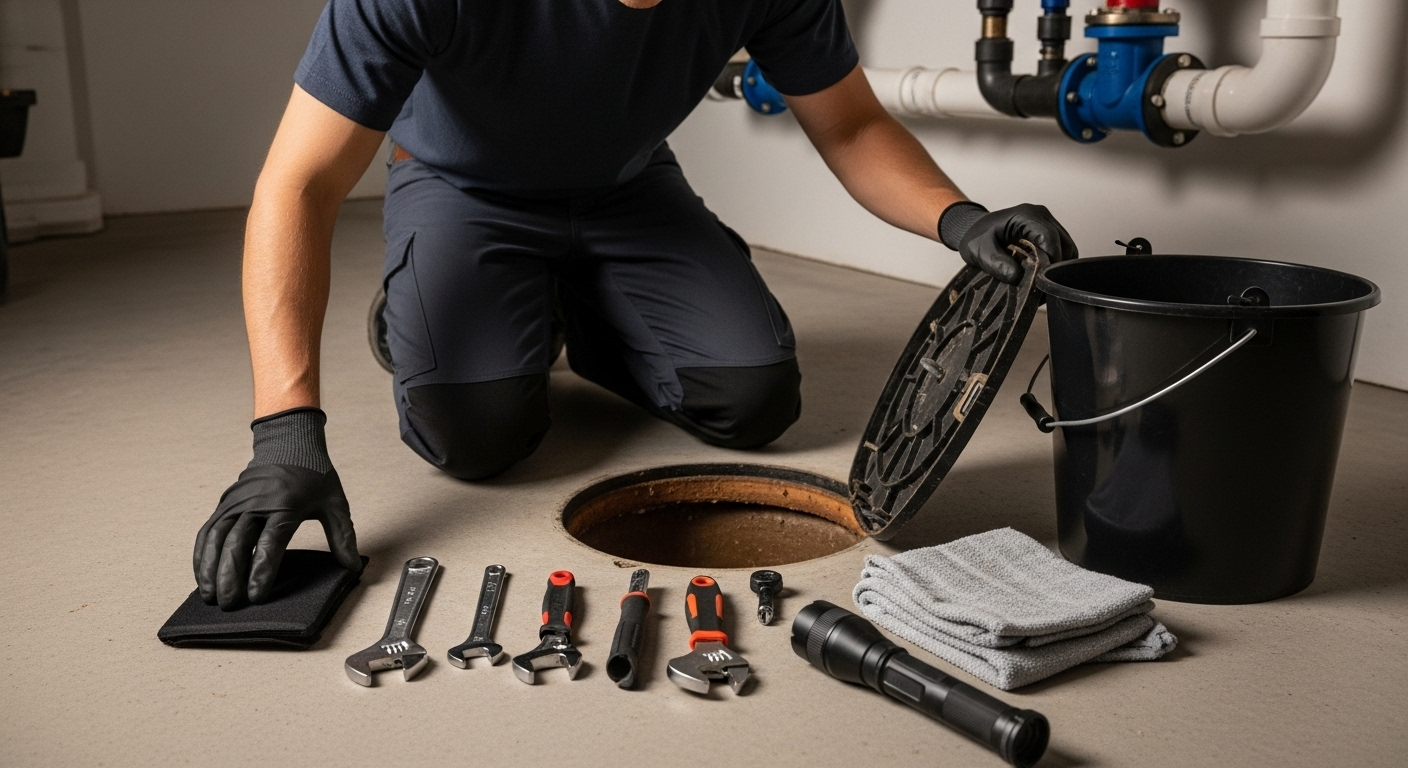Understanding the Role of a Plumber for Clogged Sink
Understanding the Role of a Plumber for Clogged Sink
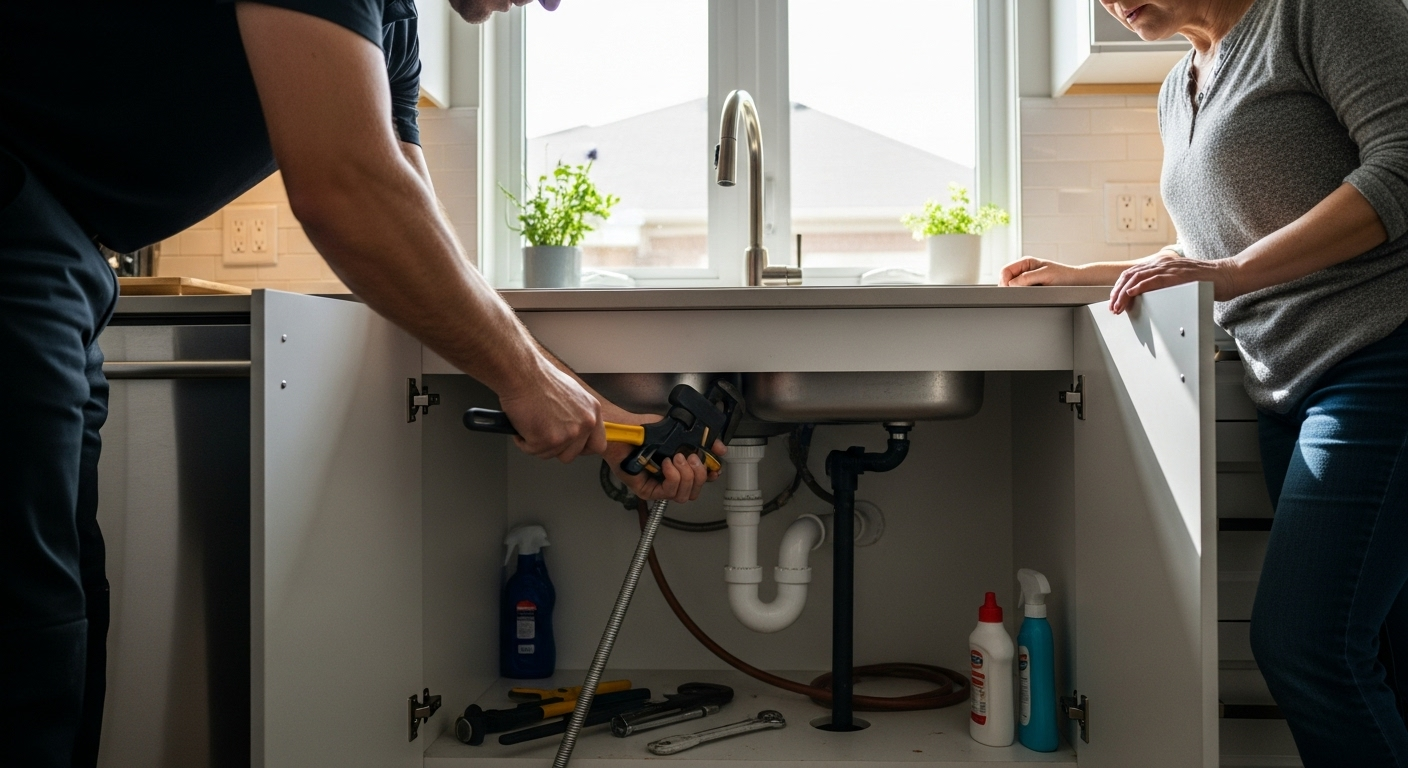
Clogged sinks catch almost everyone off guard at some point. Most people think it takes a mountain of debris to cause chaos in the pipes, but that is not the case. Even a thin layer of grease or leftover food can narrow the pipes and eventually stop water flow completely. Homeowners are often shocked to learn their daily routines contribute to hidden problems lurking just beneath the drain.
Table of Contents
Quick Summary
| Takeaway | Explanation |
|---|---|
| Prevent clogs by avoiding problematic waste disposal. | Mindful disposal of food, grease, and hair can prevent kitchen and bathroom sink blockages. |
| Recognize when to call a plumber. | Signs like slow drainage and foul odors indicate deeper issues requiring professional assessment and solutions. |
| Schedule regular plumbing maintenance. | Routine inspections and cleanings help maintain plumbing health and prevent costly emergency repairs. |
| Utilize advanced plumbing tools. | Professional plumbers use specialized equipment like drain cameras and hydro jetting for effective blockage resolution. |
| Understand the plumbing system mechanics. | Knowledge of the drainage system design can help homeowners recognize potential issues and take preventative actions. |
What Causes Clogged Sinks and Why It Matters
Clogged sinks are a common household problem that can disrupt daily life and potentially cause significant plumbing damage if left unaddressed. Understanding the root causes of sink blockages helps homeowners prevent and manage these frustrating issues effectively.
Common Sources of Sink Blockages
Sink clogs typically develop through a combination of factors that gradually accumulate and restrict water flow. Organic material is the primary culprit behind most sink blockages. This includes:
- Food particles from dishes and cooking
- Hair and soap residue
- Grease and cooking oils
- Mineral deposits from hard water
Over time, these substances create layers of buildup inside pipe walls, gradually narrowing the drainage pathway and impeding water movement. The problem often starts small but can quickly escalate into a complete blockage that requires professional intervention.
Below is a table outlining the most common sources of sink blockages and the associated risks if left unaddressed.
| Source of Blockage | Description | Potential Risks if Ignored |
|---|---|---|
| Food particles | Remnants from dishes and cooking build up in the pipes | Slow drainage, full blockages, foul odours |
| Hair and soap residue | Accumulates in bathroom sinks and traps, causing narrowing | Water backup, bacterial growth |
| Grease and cooking oils | Cools and solidifies on pipe walls, trapping other debris | Pipe corrosion, possible ruptures |
| Mineral deposits (hard water) | Hard water leaves mineral layers that reduce water flow | Structural damage, poor drainage performance |
The Hidden Risks of Ignored Sink Blockages
Ignoring early signs of a clogged sink can lead to more serious plumbing complications. When water cannot flow freely, pressure builds up in the pipes, potentially causing:
- Pipe corrosion and potential ruptures
- Bacterial growth in stagnant water
- Unpleasant odors permeating your kitchen or bathroom
- Potential water damage to surrounding structures
Homeowners can learn more about preventing drain issues by understanding these underlying mechanisms.
Professional plumbers use specialized diagnostic tools like drain cameras to identify the precise location and nature of blockages, ensuring targeted and effective solutions that protect your home’s plumbing infrastructure.
Key Signs You Need a Plumber for Clogged Sink
Recognizing when a sink blockage requires professional intervention can save homeowners significant time, money, and potential property damage. Not all sink clogs are created equal, and some situations demand expert attention beyond simple home remedies.
Persistent and Severe Drainage Problems
Some sink blockages indicate more serious underlying plumbing issues that cannot be resolved with typical household tools. Warning signs of a significant drainage problem include:
- Water backing up or draining extremely slowly
- Recurring clogs within short periods
- Unusual gurgling sounds from pipes
- Multiple drains clogging simultaneously
- Foul odors emerging from sink drainage area
These symptoms suggest a potential deeper issue within your home’s plumbing system that requires professional diagnostic assessment. Professional plumbers can identify root causes using specialized equipment like drain cameras and hydro jetting technologies.
Complex Blockage Indicators
Certain situations clearly signal the need for professional plumbing services. Water that pools around drain areas, discolored water, or visible pipe damage are critical indicators. Check out our comprehensive guide on plumbing warning signs to understand when expert intervention becomes necessary.
Homeowners should also pay attention to potential structural implications. Persistent sink blockages might indicate more significant problems like:
- Underground pipe damage
- Tree root intrusion
- Structural shifts affecting drainage systems
- Municipal sewer line complications
Ultimately, professional plumbers bring expertise, specialized tools, and diagnostic capabilities that go far beyond basic unclogging techniques. Their comprehensive approach ensures not just immediate problem resolution but also long term plumbing system health.
The following table compares basic home methods with professional plumbing techniques for addressing sink clogs, summarizing their key features and limitations.
| Method Type | Tools/Techniques Used | Strengths | Limitations |
|---|---|---|---|
| Home remedies | Plunger, hot water, store-bought drain cleaner, basic drain snake | Fast, inexpensive, easy to access | May not clear stubborn or deep blockages; potential pipe damage from chemicals |
| Professional intervention | Drain camera, hydro jetting, auger, enzymatic treatment, pipe locators | Advanced detection, long-term solution, thorough cleaning | Requires scheduling, higher upfront cost |
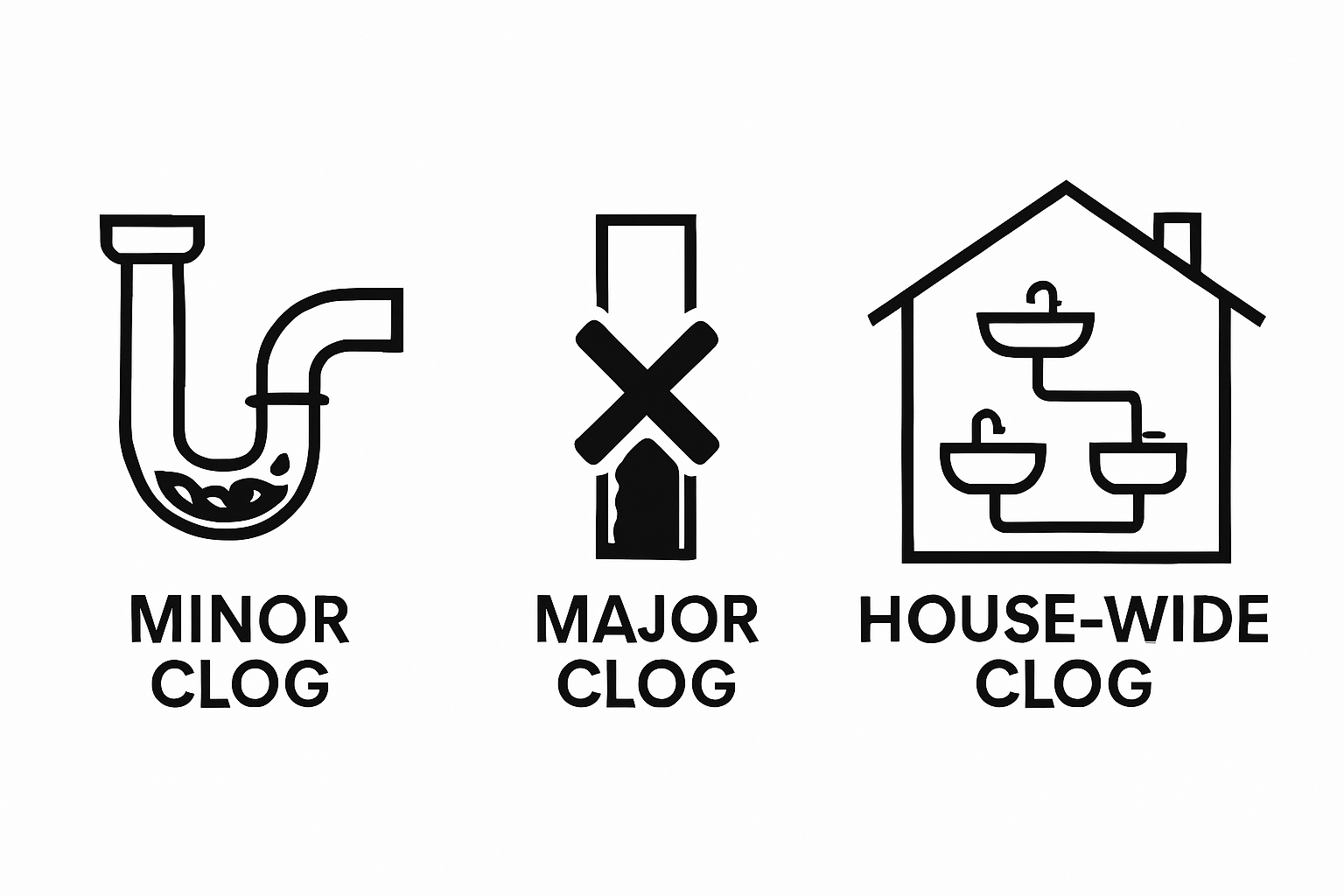
How Plumbing Systems Handle Clogs
Plumbing systems are complex networks designed to efficiently transport water and waste away from residential and commercial spaces. Understanding how these systems manage and mitigate potential blockages is crucial for homeowners seeking to maintain their infrastructure and prevent significant plumbing complications.
The Mechanics of Drainage Flow
A well-designed plumbing system relies on gravity and precise pipe configuration to move water and waste effectively. Pipes are strategically angled to facilitate natural downward flow, typically with a minimum slope of 1/4 inch per foot. This careful engineering helps prevent material accumulation and supports continuous drainage.
The system incorporates several key components that help manage potential blockages:
- Trap mechanisms that prevent sewer gases from entering living spaces
- Vent pipes that regulate air pressure within the plumbing network
- Strategic pipe angles that minimize potential debris buildup
- Cleanout points for easier access during maintenance
Responding to Potential Blockage Scenarios
When initial drainage becomes compromised, plumbing systems have built-in mechanisms to signal potential problems. Gurgling sounds, slow drainage, and water backup are early warning indicators that something is interrupting the normal flow. Learn more about diagnosing drainage issues to understand these critical signals.
Professional plumbers utilize advanced diagnostic tools to address complex blockage scenarios. Technologies like hydro jetting and drain cameras allow precise identification and resolution of underlying issues. These methods can:
- Identify exact blockage locations
- Remove stubborn mineral and organic buildup
- Assess potential structural damage
- Provide comprehensive system evaluation
Ultimately, proactive maintenance and understanding your home’s unique plumbing characteristics are key to preventing significant drainage complications.
Common Tools and Techniques Plumbing Professionals Use
Professional plumbers employ a sophisticated array of specialized tools and advanced techniques to diagnose, address, and resolve complex sink and drainage issues. Their expertise goes far beyond basic household remedies, utilizing precision instruments that provide comprehensive solutions.
Advanced Diagnostic Technologies
Modern plumbing professionals rely on cutting-edge diagnostic equipment to precisely identify blockage sources and potential systemic problems. These technological tools allow for non-invasive, accurate assessments of plumbing infrastructure:
- Drain cameras with high-resolution imaging capabilities
- Electronic pipe locators
- Infrared thermal imaging scanners
- Acoustic listening devices
- Pressure testing equipment
These sophisticated instruments enable plumbers to visualize internal pipe conditions, detect hidden leaks, and map out potential problem areas without invasive excavation or destructive exploration.
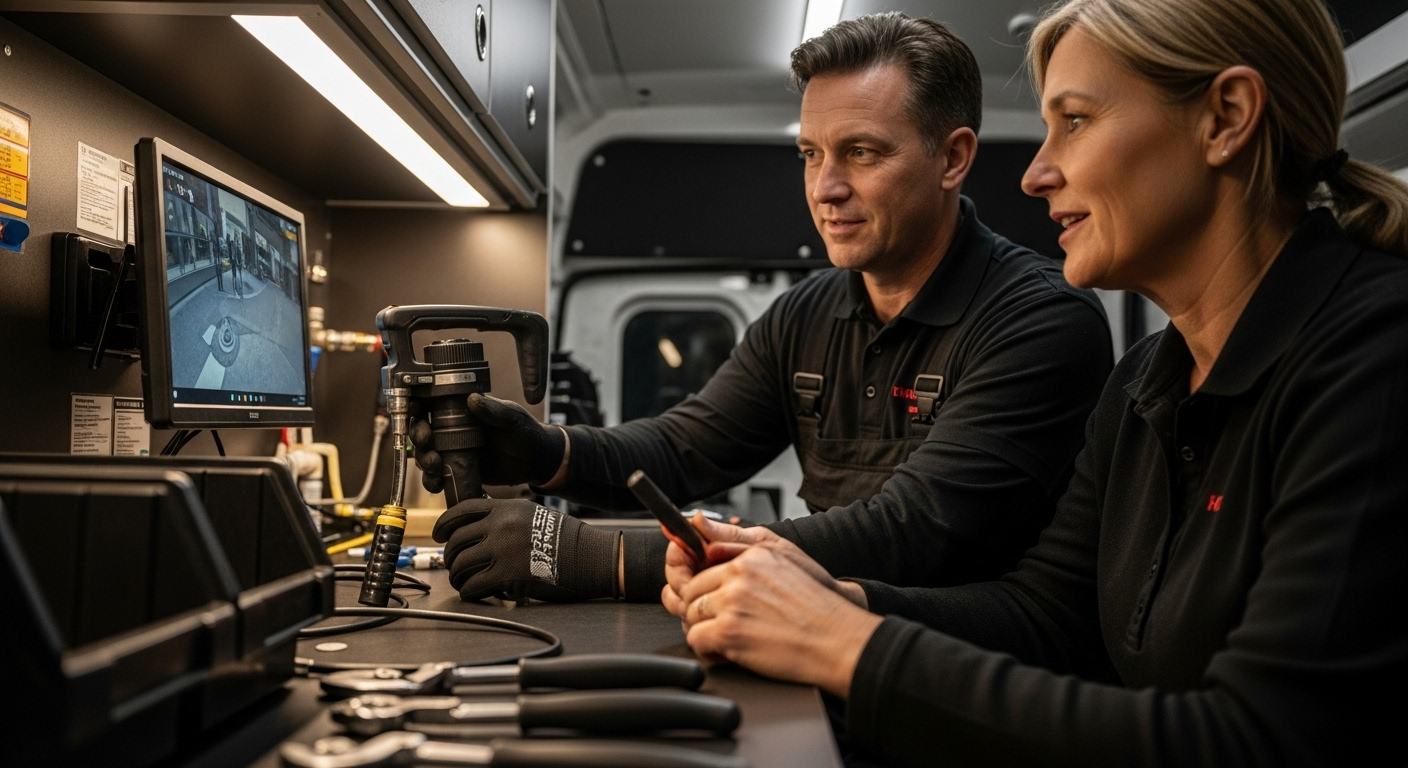
Specialized Clearing and Repair Techniques
Beyond diagnostic tools, professional plumbers utilize specialized techniques to address sink blockages effectively. Hydro jetting stands out as a powerful method for comprehensive pipe cleaning, using high-pressure water streams to eliminate stubborn debris and mineral buildup. Explore more about advanced plumbing techniques to understand the complexity of professional interventions.
Professional plumbers also employ specialized mechanical tools that provide precise blockage resolution:
- Motorized drain augers
- Flexible drain snakes
- Specialized pipe cleaning attachments
- Industrial-grade plunging equipment
- Chemical-free enzymatic cleaning solutions
Ultimately, the combination of advanced technology, specialized equipment, and professional expertise allows plumbers to provide comprehensive solutions that extend far beyond simple unclogging, ensuring long-term plumbing system health and functionality.
The Importance of Regular Maintenance to Prevent Clogs
Regular plumbing maintenance represents a critical strategy for homeowners seeking to protect their residential infrastructure and avoid costly, disruptive drainage complications. Understanding the proactive steps that prevent sink and pipe blockages can save significant time, money, and potential property damage.
Understanding Preventative Maintenance Principles
Preventative maintenance operates on the fundamental principle that consistent, small interventions are far more cost-effective than major repairs. Plumbing systems accumulate debris, mineral deposits, and potential blockage materials gradually, making routine inspection and cleaning essential for long-term system health.
Key areas of focus for preventative maintenance include:
- Monitoring water pressure and flow rates
- Inspecting visible pipe connections
- Checking for early signs of corrosion
- Evaluating drainage speed and consistency
- Examining potential water quality issues
Proactive Strategies for Sink and Drain Protection
Homeowners can implement several practical strategies to minimize clog risks. Mindful waste disposal plays a crucial role in maintaining clear drainage systems. Learn about items that should never enter your drains to understand potential blockage sources.
Additional protective strategies include:
- Using drain screens to catch debris
- Running hot water periodically to clear potential buildup
- Avoiding pouring grease or oil down kitchen sinks
- Scheduling professional drain cleaning annually
- Implementing enzymatic drain treatments
Ultimately, regular maintenance transforms plumbing systems from potential problem zones into reliable, efficient infrastructure. Professional plumbers recommend a comprehensive approach that combines homeowner awareness and periodic expert inspection to ensure optimal drainage performance.
Say Goodbye to Stubborn Sink Clogs with Trusted Toronto Plumbers
Are you overwhelmed by persistent sink clogging, recurring drainage problems, or worrying sounds from your pipes? If you have experienced any of the warning signs from the article such as slow drains, foul odours, or water backing up, you know how quickly a simple issue can disrupt your home and cause stress. With years of accumulated debris, hidden buildup, and the real potential for costly damage, fast and reliable help makes all the difference in protecting your peace of mind.
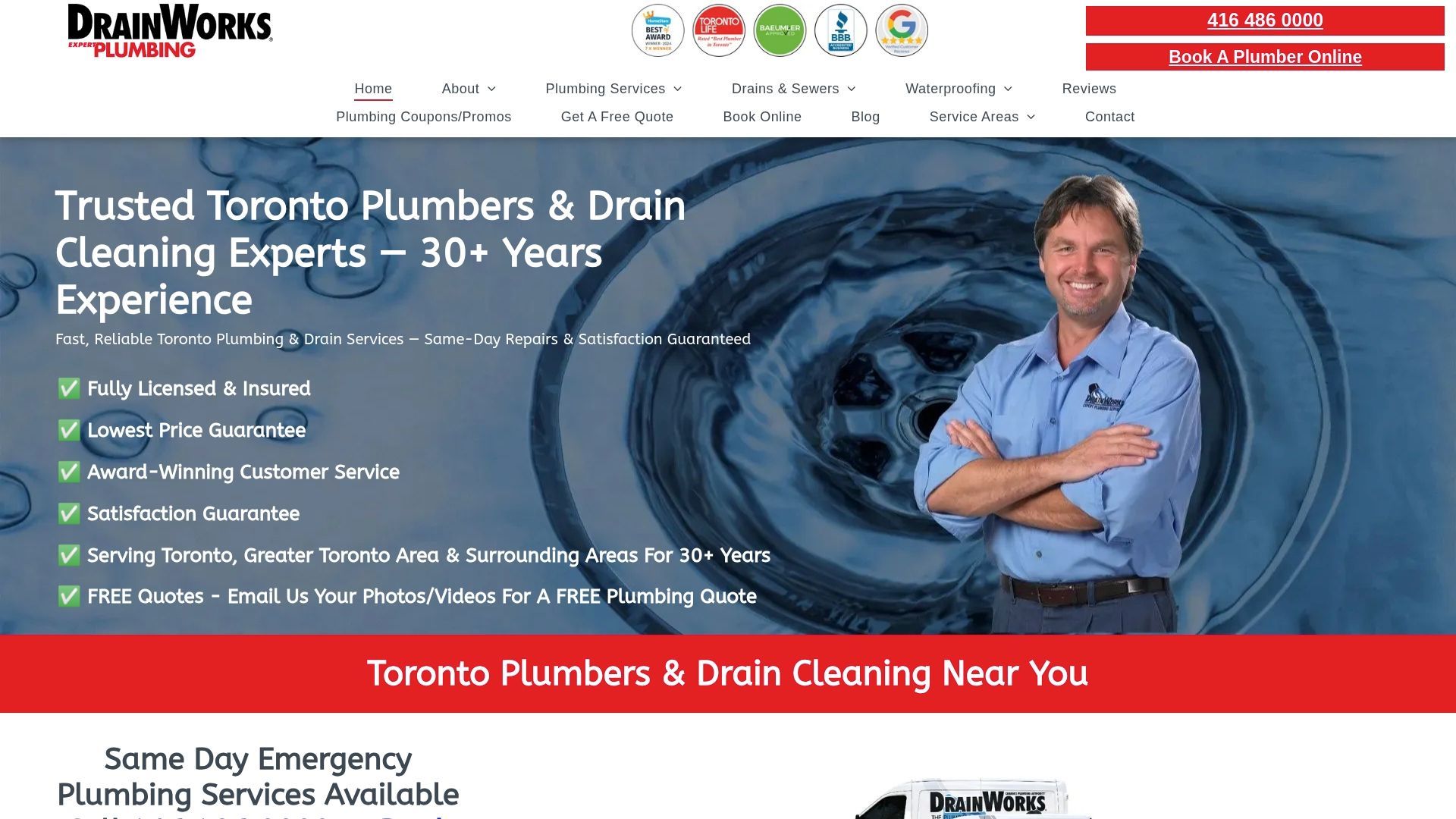
Let DrainWorks Plumbing take the uncertainty out of your plumbing problems. As Toronto’s most awarded plumbing team, our licensed experts use advanced tools like hydro jetting and sewer cameras for precise blockage removal and long-term protection. We offer same-day emergency service and upfront pricing, so you have no surprises and no hidden fees. Whether you need help with clogged drain diagnosis and repair, preventative maintenance, or just want the comfort of knowing your home is protected, we are ready to help. Trust the team Toronto homeowners have relied on for over 30 years. Get your free estimate now at DrainWorks Plumbing and experience true peace of mind with every flush and drain.
Frequently Asked Questions
What are the most common causes of a clogged sink?
The most common causes of a clogged sink include food particles, hair, grease, soap residue, and mineral deposits from hard water. Over time, these materials accumulate and restrict water flow.
When should I call a plumber for a clogged sink?
You should call a plumber if you experience persistent drainage issues, such as slow drainage, multiple drains clogging at the same time, or if you hear gurgling sounds from the pipes. These symptoms may indicate a more serious underlying plumbing problem.
How do professional plumbers diagnose clogged sinks?
Professional plumbers utilize advanced diagnostic tools such as drain cameras to visually inspect pipes and identify blockages. They may also employ hydro jetting techniques to clean the pipes effectively.
What preventative measures can I take to avoid sink clogs?
To prevent sink clogs, you can use drain screens to catch debris, avoid pouring grease down the sink, run hot water periodically, and schedule annual professional drain cleaning to maintain optimal drainage performance.



